The power of SMEs
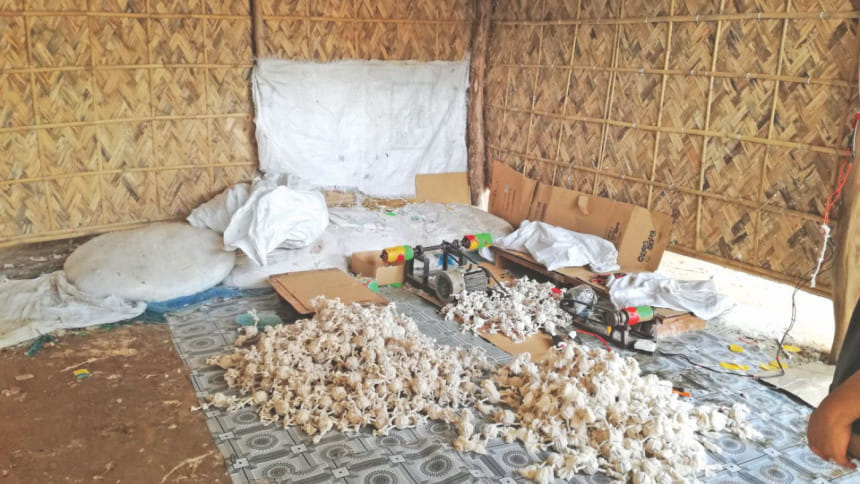
When you think of starting a business in Bangladesh, you almost immediately think of exploring your options in the garments sector. You might even take the risk of venturing into the food business or any other 'tested and tried' sector that is bound to give an instant reward.
51-year-old Mohammad Shahidul Islam Fakir, who hails from Bhaluka Upazila of Mymensingh, however, took the road less travelled. He chose to get involved in a business so unique in the country that his closest companions thought that he had lost it. In 2012, Shahidul had decided to make toys for dogs and sell them abroad. Today, Islam has 300 employees working in five tin-shed buildings making 35 types of toys for foreign customers.
" "I searched for these products, not only in the DITF, but elsewhere as well. I couldn't find anything similar. That's when it struck me. The raw materials needed to make these toys are available in the country. Why don't I try making these toys on my own?" says Shahidul.
Shahidul's journey began in 2012 when a Japanese buyer approached him through his younger brother, who lives in Japan. The person gave Shahidul a few products and asked him if he could find these at the Dhaka International Trade Fair. "I searched for these products, not only in the fair, but elsewhere as well. I couldn't find anything similar. That's when it struck me. The raw materials needed to make these toys are available in the country. Why don't I try making these toys on my own?" says Shahidul.
That small gutsy step taken by Shahidul led to the creation of Shin Trading. The products he made were sent to the famous Doggy Man H A Co. Ltd in Japan and they were impressed. Soon after, the company asked Shahidul for 35,000 cotton pet toys worth Tk 9 lakh. They even paid a 50 percent interest. Shahidul completed the rest with the help of a loan.
"I finished the first order with the help of my relatives in around six months. In the beginning, we started with toys such as cotton balls or cotton stick. Now we produce various items, such as coco hamster cage, wooden dumbbell, catching board, cotton items and much more," says Shahidul. Another positive is that the factory depends mainly upon middle-aged female workers, many of whom are not eligible to work in traditional large mills or factories due to their age.
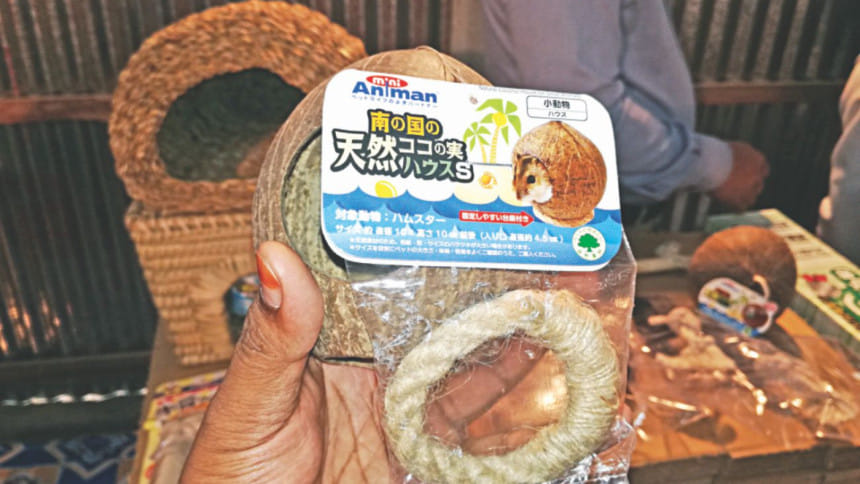
Shahidul's company is an excellent example of a Small and Medium Enterprise (SME) which employs workers from rural areas on a regular basis. In Bangladesh, SMEs are organisations with less than 300 workers and assets worth Tk 50 crore. These organisations, ranging from agro-processing to ready-made garments, forms a major share of the country's GDP. Experts say that the increase in the number of SMEs is the key to alleviating poverty and improving lives.
"OUR GDP is nearly Tk 280 billion for this fiscal year. The 10 largest corporate companies in our country contribute around Tk 20 billion. The rest comes from micro, small and medium enterprises or from agriculture and other sectors," explains Mohammad Joynul Abedin, executive director at the DCCI Business Institute (DBI)
"In terms of our garment industry, if 500 SMEs produce buttons, another 500 enterprises produce needles and others yarn, then we could easily employ millions of people in these enterprises. If we can train our SME entrepreneurs with proper technical skills to produce quality products that live up to international standards, we can get a share of the international market," he adds.
According to the 2013 National Economic Census, there are just under a million SMEs in the country and the sector has taken a lead in generating jobs. According to the census, the sector generates 80-85 percent of total industrial employment, which makes up 25 percent of total GDP contribution.
In addition, the SME Cluster Study 2013 shows that around 69,902 enterprises have been operating their businesses in 177 clusters and approximately 1,937,809 people have been working there, which makes an annual turnover of Tk 29, 5150 millions.
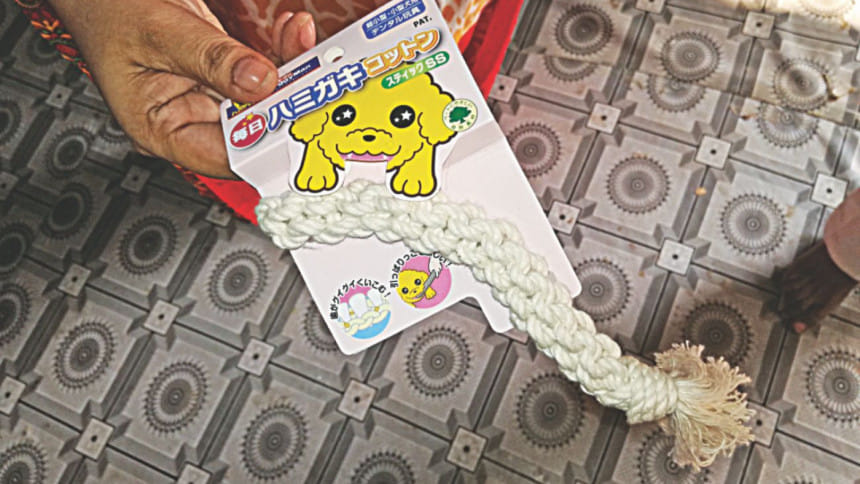
Another important aspect is that 60-65 percent of the SMEs are located outside the metropolitan areas, a key element of the government's strategy for reducing regional inequality. And, these enterprises don't take up much land or require excessive amounts of electricity.
Like Shahidul, 30-year old Arifa Yesmin Moyuri, a member of the hijra community, took up a small business to carve out a living. After graduating in Electronics and Telecommunication Engineering (ETE) from Mymensingh Polytechnic Institute, it was difficult for Moyuri to find a job. Moyuri would appear in job interviews with a formal look, wearing shirt and trousers, but after the interviewers found that she looks and talks like a woman, they would never call her back. Some of them even directly told her to get out.
But this bitter experience urged her to do something for herself and people like her, so that they would need to beg for money from anyone. And this was the start of the 'Shiri Somaj Kolyan Songstha', a small handicraft organisation run by the third gender community of Jamalpur district.
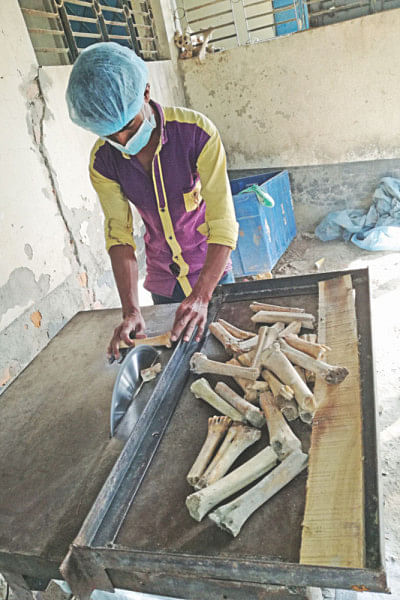
Starting off in 2013, this organisation has employed 87 hijras, who make handicraft products, such as salwar kameezes, saris, shawls, kanthas and more. The elderly hijras among them, who cannot work on handicrafts, usually cook or perform other services for those who work there.
According to Moyuri, people of Jamalpur are very good at making handicrafts and almost every girl learns how to make such products from their mothers. "In fact, many boys here know how to make designs as well," says Moyuri. "Since the hijras are fond of doing work girls love doing, we decided to start a new enterprise. Initially, we had only five members," she adds.
But a business undertaking is always challenging and while success stories are fun to hear, the struggle is as difficult. For example, when Moyuri started her business, she and her friends had no idea where to sell their products or whether people would buy these at all. But since she was involved in different social work, the deputy commissioner of Jamalpur helped her exhibit her products at the local development fair.
"It is something like a dream come true when you get appreciation for your work. Now, the money I earn from exhibiting my products in different fairs is enough for me to spend throughout the year. Currently, I'm in the process of establishing a showroom to expand my business," says a happy Moyuri.
People like Shahidul believe that the government needs to provide them with more support so that they can compete internationally. "My equipment and product quality is not good enough to compete internationally and no one is here to help me with producing better quality products," he says.
Currently, different government and non-government authorities such as Bangladesh Small and Cottage Industries Corporation (BSCIC), SME Foundation, Bangladesh Bank, Women entrepreneurs association and many others areworking on the overall development and expansion of the SME clusters.
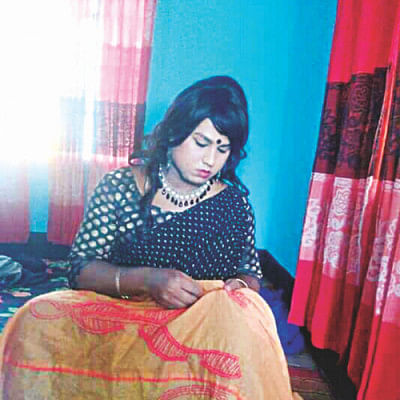
Jibon Kumar Chowdhury, director (Development and Expansion), BSCIC informs us that the organisation usually provides entrepreneurs with land, loans, technical assistance, and arranges necessary counselling programmes and workshops.
"Besides, we are working on creating monotype industrial estate by bringing the plastic, chemical, printing, hosiery entrepreneurs in one place, who have been working on a specific sector for years, but living in different region of the country," he adds.
Although many entrepreneurs claim that access to finance is a major obstacle for entrepreneurs, the SME Foundation says it is working on managing low-cost finance for the SME entrepreneurs through a credit wholesaling programme with 12 partner financial institutions. So far, they have disbursed a total of Tk 0.79 crore to the 1,503 beneficiaries (1,039 male and 464 female).
" If entrepreneurs can receive necessary technical training to increase the quality of their products, they can bring something outstanding to our economy.
Md Shafiqul Islam, managing director of the SME Foundation highlights that entrepreneurs lack a physical space where they can sell their products as their SMEs cannot afford to take showrooms at luxurious shopping malls. Many of them also want to sell their products in the international market, but cannot do well as they cannot always find the right channel. "We try to assist them in this regard because they are contributing to our export earnings significantly. Sometimes, we send our entrepreneurs abroad to gain knowledge, expertise, skill, preparation and quality," says Islam.
However, Abdin stresses that if entrepreneurs can receive necessary technical training to increase the quality of their products, they can bring something outstanding to our economy. Although currently different organisations, such as technical training centres of government, Department of Youth Development, SME Foundation, Bangladesh Small and Cottage Industries Corporation (BSCIC), and Bangladesh Council of Scientific and Industrial Research (BCSIR), are providing training to SME entrepreneurs, there must be a coordinated curriculum. Otherwise such training will be of no use in the long run.
We talk about inclusive development; these small-scale initiatives are consistent with the idea, engaging more and more of the urban and rural poor in productive activities. It is time to create more scope for SMEs so that they can be a part of the value chain.





Comments